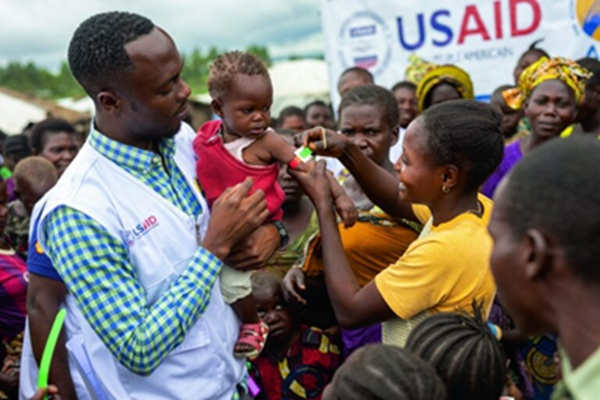The Democratic Republic of Congo (DRC) could be severely affected by the looming shutdown of the U.S. Agency for International Development (USAID). The DRC is one of the top African recipients of U.S. aid.
On February 3, Elon Musk, as Head of the U.S. Government Department of Efficiency, announced the USAID’s potential closure. A few days prior, President Trump had issued an executive order freezing U.S. foreign aid for 90 days, except for Israel, Egypt, and emergency food assistance. Secretary of State Marco Rubio has been appointed as the USAID’s interim director to address internal "insubordinations" that hindered a planned review of the agency's activities. Citing Rubio, several media outlets reported that the Agency’s actions sometimes misaligned with the United States’ strategic priorities.
Potential Repercussions on DRC
The DRC heavily relies on aid from the U.S. In a statement released on January 23, 2025, the U.S. embassy said the USAID has channeled over $6 billion in humanitarian and development assistance to the DRC over the past decade, averaging $600 million annually. This is nearly double the infrastructure investments slated to flow from the Sicomines contract, a controversial deal involving Chinese entities, until 2040.
"As the largest bilateral donor, working in 25 of the DRC's 26 provinces, USAID advances health and education, protects the environment, provides vital humanitarian assistance, and supports economic growth that benefits all citizens," the embassy’s statement reads.
In 2024, before Trump was elected, USAID announced an additional $424 million in aid, including $414 million for humanitarian assistance related to conflict and displacement, and $10 million for health initiatives targeting the Mpox epidemic. The agency also provided 50,000 doses of the Mpox vaccine to the DRC, which is the country hardest hit by the disease. These commitments brought total U.S. humanitarian aid to the DRC to over $838 million for fiscal year 2024.
While it is still too early to know if the USAID will effectively shut down, the potential consequences for the DRC are significant. This could disrupt essential services for millions of people who depend on USAID aid.
In an interview with French media RFI, Jacques Mukena, a governance and economics specialist at the Ebutleli Congolese Institute, suggested that the U.S. may seek to negotiate terms for maintaining aid, potentially requiring the DRC to “align more closely with U.S. strategic interests”. "They may demand a reduction in Chinese influence, particularly over control of strategic minerals," Mukena added.
This article was initially published in French by Louis-Nino Kansoun
Edited in English by Ola Schad Akinocho










